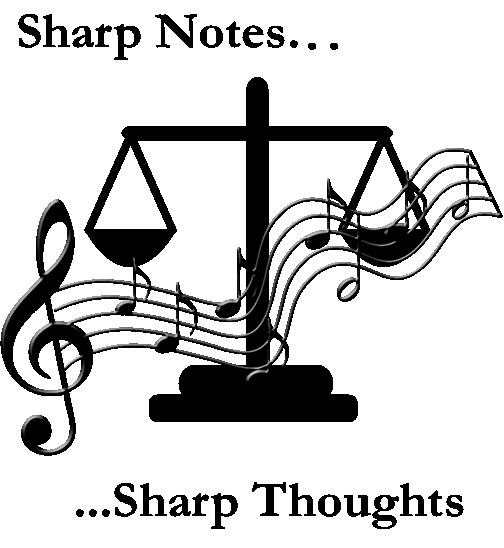“Songs, Statues, and Solutions”: Monuments, Driving Old Dixie Down, and Social Justice
 Believe it or not, I always enjoy the chance to talk about Civil War monuments. It’s a difficult topic to talk about because emotions on all sides often get in the way of rational discussion—but that’s exactly why I feel an obligation to try and talk about them. Conversation is key.
Believe it or not, I always enjoy the chance to talk about Civil War monuments. It’s a difficult topic to talk about because emotions on all sides often get in the way of rational discussion—but that’s exactly why I feel an obligation to try and talk about them. Conversation is key.
Next week, I’ll have the chance to talk about monuments as part of a panel discussion sponsored by the Jandoli Institute at St. Bonaventure University, where I teach. And YOU are welcome to Zoom into the conversation, which is free and open to the public. Details on the event follow after the break.
‘Night They Drove Old Dixie Down’ will spark discussion of music and social justice
ST. BONAVENTURE, N.Y., Nov. 12, 2020 — “The Night They Drove Old Dixie Down,” the iconic song from the Band’s self-titled 1969 album, will serve as a starting point for the Jandoli Institute’s second forum on music and social justice.
The forum, “Songs, Statue and Solutions,” will take place on Zoom from 7 to 8 p.m. on Monday as part of the institute’s Sharp Notes, Sharp Thoughts series.” The link to the session is https://sbu.zoom.us/j/96821782435.
“The Band’s song will help us explore what happens when music and other art forms are interpreted differently from what the artists intended,” Richard Lee, the institute’s executive director, said.
Lee said that although the song’s author, Robbie Robertson, did not write “The Night They Drove Old Dixie Down” to glorify the Confederacy or widen the racial divide in America, it has been used for such purposes.
“Statues have been removed and buildings renamed because of associations with racist pasts,” Lee said. “Do we apply similar standards to music, especially when a song has come to symbolize something far from what the songwriter intended?”
That question will be the focus of the institute’s forum. Lee, who covered rock’n’roll as a reporter, will lead the discussion and will be joined by other members of the Sharp Notes, Sharp Thoughts team:
- David Freeman, a musician, producer and cultural arts educator. Freeman is a faculty member at Pace University’s Department of Media, Communication and Visual Arts and Director of Education for Brooklyn Raga Massive. He also serves on the board of The Association of Teaching Artists.
- Alex R. Gillham, an assistant professor of philosophy at St. Bonaventure University. Gillham’s research focuses on topics in ethics, ancient philosophy and philosophy of religion. He is particularly interested in the connection between music, identity and morality.
- Stephen Wilt, an archivist at Media Transfer Service in Rochester and host of a weekly podcast, Street Corner Talking. As station manager and music director at 88.3 WSBU-FM, he interviewed professional musicians, celebrities and athletes. They included Stephen Stills, Judy Collins, Louis Anderson, Doug Flute, Dr. Oz. Jimmy Page and many others.
- Paul Ziek, an associate professor in the Department of Media, Communications, and Visual Arts at Pace University, where he teaches strategic and organizational communication in both the undergraduate and graduate programs.
- Lee is an associate professor in the Jandoli School of Communication at St. Bonaventure University. He writes and comments regularly on the intersection of music and public policy. During his career as a journalist, he covered rock’n’roll for several years before establishing himself as a political reporter.
Chris Mackowski, a writing professor in the Jandoli School of Communication at St. Bonaventure, will join the panel. Mackowski is the editor-in-chief of Emerging Civil War (www.emergingcivilwar.com) and the author of more than a dozen books about the Civil War.
The Jandoli Institute launched Sharp Notes, Sharp Thoughts in October to explore the connection between music and social justice. The institute developed the project in collaboration with the Department of Media, Communications, and Visual Arts at Pace University. Through the project, scholars, musicians, journalists and others plan to show how music has been – and can continue to be – a positive tool for social change.”
The Jandoli Institute serves as a forum for academic research, creative ideas and discussion on the intersection between media and democracy. The institute, accessible at jandoli.net, is part of the Jandoli School of Communication at St. Bonaventure University.
-30-
I’ve never considered the song a neo-Confederate Lost Cause homage. More of a lament of the common, poor white trash Rebel Everyman of the South. They had a hatred & disdain for the Yankees no doubt, but one can also sense similar sentiment toward the planter class hotheads who brought on secession and war. Shades of the “rich man’s war, poor man’s fight”, and of dissension, desertion, and disillusion just below the surface. Cracks in the facade of Confederate nationalism and morale.
When I see the phrase “social justice”, I almost instinctively reach back to make sure I still have my wallet. And roll my eyes.